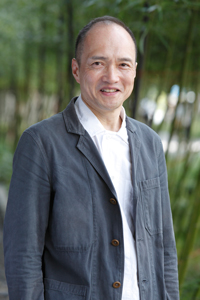Awakening and Insight: Zen Buddhism and Psychotherapy 1st Edition
by Polly Young-Eisendrath (Editor), Shoji Muramoto (Editor)
5.0 out of 5 stars 1 rating


ISBN-13: 978-0415217941
ISBN-10: 0415217946Why is ISBN important?
Buddhism first came to the West many centuries ago through the Greeks, who also influenced some of the culture and practices of Indian Buddhism. As Buddhism has spread beyond India, it has always been affected by the indigenous traditions of its new homes. When Buddhism appeared in America and Europe in the 1950s and 1960s, it encountered contemporary psychology and psychotherapy, rather than religious traditions. Since the 1990s, many efforts have been made by Westerners to analyze and integrate the similarities and differences between Buddhism and it therapeutic ancestors, particularly Jungian psychology.
Taking Japanese Zen-Buddhism as its starting point, this volume is a collection of critiques, commentaries, and histories about a particular meeting of Buddhism and psychology. It is based on the Zen Buddhism and Psychotherapy conference that took place in Kyoto, Japan, in 1999, expanded by additional papers, and includes:new perspectives on Buddhism and psychology, East and West
cautions and insights about potential confusions
traditional ideas in a new light.
It also features a new translation of the conversation between Schin'ichi Hisamatsu and Carl Jung which took place in 1958.
Awakening and Insight expresses a meeting of minds, Japanese and Western, in a way that opens new questions about and sheds new light on our subjective lives. It will be of great interest to students, scholars and practitioners of psychotherapy, psychoanalysis, and analytical psychology, as well as anyone involved in Zen Buddhism.
Read less
Report incorrect product information.
Customers who bought this item also bought

Psychology of Yoga and Meditation: Lectures Delivered at ETH Zurich, Volume 6: 1938–1940 (Philemon Foundation Series, 20)
C. G. Jung
4.7 out of 5 stars 23
Hardcover
Editorial Reviews
About the Author
Polly Young-Eisendrath is Clinical Associate Professor of Psychiatry at the University of Vermont Medical College and a psychologist and Jungian analyst practicing in central Vermont, USA.
Shoji Muramoto is Professor of Foreign Studies a Kobe City University in Kobe, Japan, and a psychologist.
Product details
Publisher : Routledge; 1st edition (April 11, 2002)
Language : English
Paperback : 288 pages
ISBN-10 : 0415217946
ISBN-13 : 978-0415217941
Item Weight : 15.8 ounces
Dimensions : 6.14 x 0.65 x 9.21 inchesBest Sellers Rank: #3,225,107 in Books (See Top 100 in Books)#392 in Buddhism (Books)
#1,547 in Jungian Psychology (Books)
#6,789 in PsychotherapyCustomer Reviews:
5.0 out of 5 stars 1 rating
Videos
Help others learn more about this product by uploading a video!Upload video
About the author
Follow authors to get new release updates, plus improved recommendations.

Follow
Polly Young-Eisendrath
Polly Young-Eisendrath is a Jungian Analyst, Psychologist, teacher and author. She is Clinical Associate Professor of Psychiatry at the University of Vermont and in private practice in central Vermont. Polly is the originator of Dialogue Therapy, which is designed to transform chronic conflict in relationships into greater closeness and spiritual development. In January 2019, Shambhala/Random House will publish Polly’s new book, Love Between Equals: Relationship as a Spiritual Path, which offers her vision of personal love as a spiritual path and draws on her 30 years of experience as a Dialogue Therapist and Jungian psychoanalyst. Polly’s clinical practice and teaching have focused both on individual psychotherapy and analysis, as well as Dialogue Therapy. She is a past president of the Vermont Association for Psychoanalytic Studies and a founding member of the Vermont Institute for the Psychotherapies. She is also a Mindfulness teacher and has been a practitioner of Buddhism since 1971.
Polly is the author of sixteen books, as well as many book chapters and articles. Her books have been translated into more than twenty languages. Her most recent works are The Present Heart: A Memoir of Love, Loss and Discovery (Rodale, 2014); The Self-Esteem Trap: Raising Confident and Compassionate Kids in an Age of Self-Importance (Little, Brown, 2008); and The Cambridge Companion to Jung: New and Revised, of which she is co-editor with Terence Dawson (Cambridge University Press, 2008).
Customer reviews
5.0 out of 5 stars
Write a customer review
Top reviews
Top review from the United States
Dr. Edward Hoffman
5.0 out of 5 stars Brilliant new guide to Buddishm and psychologyReviewed in the United States on August 26, 2002
Buddhism and psychology have recently gained increasing interest for their intriguing similarities about the human mind, growth, inner healing, and creativity. In this stimulating book, the editors offer a variety of provocative essays. I found the discussions about Jungian psychology and its relevance to Buddhism today to be particularly interesting. Strongly recommended.
18 people found this helpful



 My research field is clinical psychology; I am interested in the cultural and historical background of psychotherapy, beyond the various psychological problems appearing in psychotherapy. In this sense,
My research field is clinical psychology; I am interested in the cultural and historical background of psychotherapy, beyond the various psychological problems appearing in psychotherapy. In this sense,